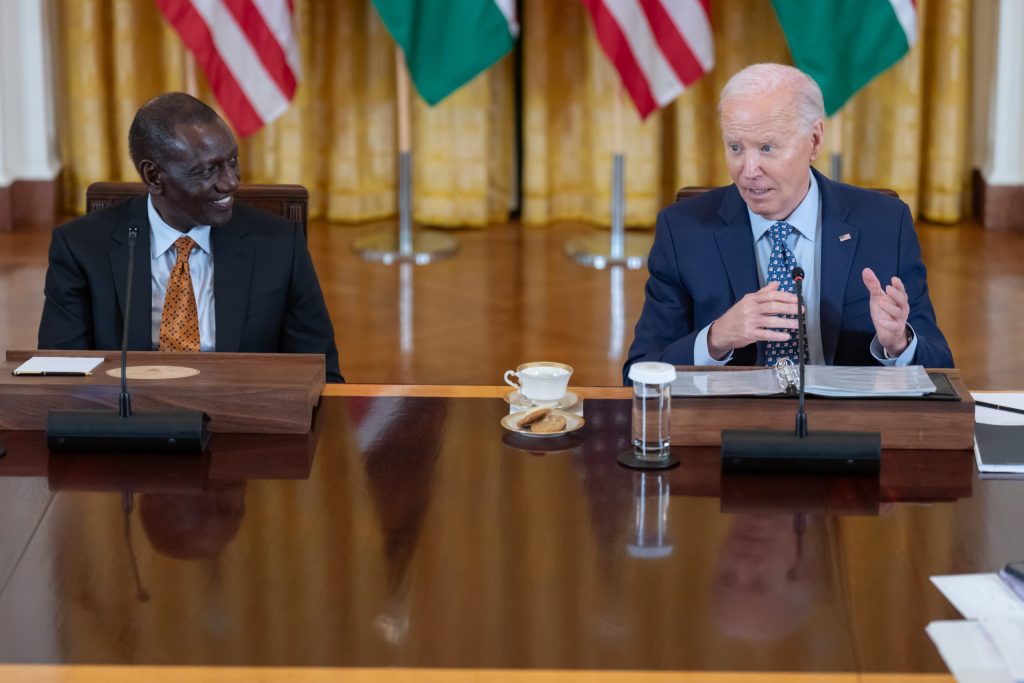The United States recently designated Kenya as a Major Non-NATO Ally (MNNA) during President Ruto’s state visit to the United States.
This designation makes Kenya the first country in Sub-Saharan Africa to receive this status.
But what does being a Major Non-NATO Ally mean, and what does it entail for Kenya and its cooperation with the United States?
What is a Major Non-NATO Ally?
A “Major Non-NATO Ally” (MNNA) is a designation given by the United States to countries that have strategic working relationships with the U.S. military but are not members of the North Atlantic Treaty Organization (NATO).
MNNA status does not entail a mutual defense pact like NATO membership but confers various military and financial advantages. It falls short of providing the full commitments that NATO allies receive.
What Privileges Do Non-NATO Allies Receive?
Apart from defense cooperation, MNNA status entails economic, defense trade, and security cooperation, but there are no security commitments to the designated country. The recent MNNA designation allows Kenya to access U.S. military technologies and equipment that would be difficult to obtain otherwise.
Summary of Benefits for Kenya:
- Participation in cooperative research and development programs with the U.S. Department of Defense.
- Kenyan firms can bid on contracts to repair and maintain Department of Defense equipment outside the United States.
- Opportunity to purchase surplus U.S. military equipment.
- Eligibility to receive loans of military equipment for research and development purposes.
- Potential to host American-owned war reserve stockpiles on its territory.
- Consideration for purchasing depleted uranium ammunition.
- Priority in receiving surplus military equipment.
However, the U.S. is not obligated to provide Kenya with direct military assistance, and Kenya is not required to send troops for NATO operations.
How Have Other African Countries Benefited from the Designation?
Kenya is the first Sub-Saharan African country to be designated a major Non-NATO ally, but there are three other African countries with this status: Egypt, Tunisia, and Morocco.
Benefits Observed in Other African MNNA Countries:
- Egypt: One of Africa’s most powerful armies, benefiting from MNNA status since 1989.
- Tunisia: Increased military strength since its MNNA designation in 2015, alongside budgetary reforms.
- Morocco: Enhanced counterterrorism efforts, gaining extensive counterterrorism experience, and hosting significant military exercises since becoming an MNNA in 2007.
As an Eastern African powerhouse, Kenya is expected to significantly benefit in its counterterrorism efforts, particularly against Al-Shabab terrorists along its border with Somalia. Kenya has also played a key role in regional conflicts, including the Tigray conflict in Ethiopia and the DRC war with M23.
List of Major Non-NATO Allies
Kenya is the newest addition to the list of 18 countries designated as MNNAs since the status was established in 1987.
Countries Designated as MNNAs:
- Asia: Bahrain, Israel, Japan, Jordan, Kuwait, Pakistan, Philippines, Qatar, South Korea, Thailand, Taiwan (treated as an MNNA without a formal designation due to the One China Policy).
- Africa: Egypt, Tunisia, Morocco, Kenya.
- South America: Argentina, Brazil, Colombia.
- Oceania: Australia, New Zealand.
What Are the Risks of a Non-NATO Ally Designation?
The MNNA designation brings various strategic and military benefits but also entails certain risks.
Regional and International Relations
- Regional Tensions: Other countries in the region may view the MNNA status as a threat, increasing regional tensions.
- Strained Relations: It can strain relations with major powers like China and Russia, which view U.S. influence as adversarial.
Over-Reliance on U.S. Military
- Dependence on U.S. Technologies: This status may lead to overdependence on the U.S., limiting the country’s ability to develop its own capabilities and strengthen its military independently.
Public Skepticism
- Anti-American Sentiment: There may be public skepticism about getting too close to the U.S., especially in countries with significant anti-American sentiments or where the population prefers alliances with other major powers like China and Russia. This skepticism could lead to political instability or public protests.
Target for Hostile Actions
- Increased Risks: Aligning closely with U.S. interests may make an MNNA a target for hostile actions by adversaries of the U.S., including terrorist groups and countries opposed to U.S. policies.
By understanding these benefits and risks, Kenya can navigate its new status as a Major Non-NATO Ally effectively, balancing its national interests with the advantages of closer ties with the United States.


